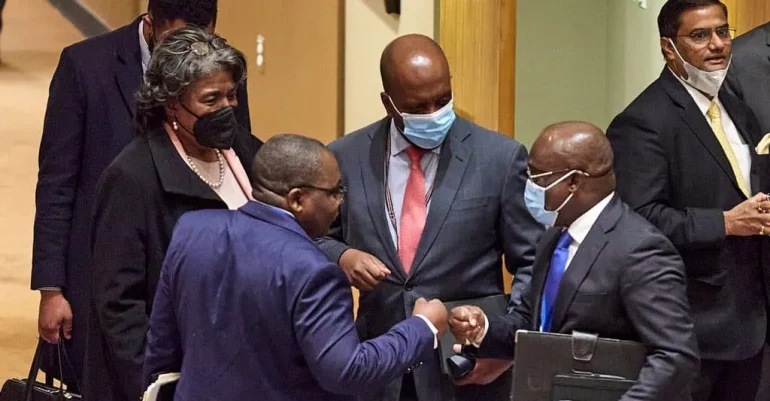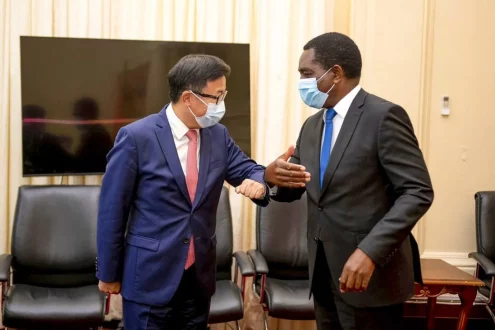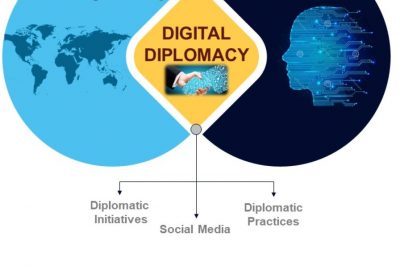The media’s importance in diplomacy has grown beyond its historical scope in light of the shifting nature of international relations. Today, journalists play a critical role in influencing diplomatic processes and activities, impacting foreign policy choices. Using the media strategically to interact with state-sponsored and non-state entities is known as media diplomacy. In this opinion piece, we explore the many facets of media diplomacy in 2023 and how it will significantly influence world affairs.
What Is Media Diplomacy?
The nexus of media and international affairs is represented by media diplomacy, which focuses on how media assists communication between policymakers, foreign governments, and global audiences. It’s a medium for communicating diplomatic messages, influencing public opinion, and accomplishing foreign policy goals. Media diplomacy is the political use of media tools to interact with foreign parties and broker deals.
Difference between Public Diplomacy and Media Diplomacy
Since both media and public diplomacy use the media to reach their audiences, they frequently need to be more consistent with one another. They have fundamentally different goals and engage actors, though. State officials use the media to interact with their counterparts in other nations as part of media diplomacy. In contrast, public diplomacy spans a more extensive spectrum in which state and non-state entities employ media to influence the general opinion of foreign audiences. The difference is in the nature of the communication and the people involved.
The Diverse Applications of Media in Diplomacy
The media has become an essential tool for communication and conflict resolution in the challenging arena of international diplomacy, where tensions and disputes frequently reach boiling points. When direct communication channels are insufficient or when testing the waters for conflict settlement, diplomats have learned to harness the media’s power to express their intentions to rival nations and non-state entities. This deliberate use of the press helps politicians promote proposals without fully committing to them, giving them, some breathing room during diplomatic negotiations.
During times of international crisis, when regular diplomatic routes are closed, or hostile parties are hesitant to interact directly with each other, media diplomacy becomes more crucial. In such situations, communication between opposing sides is frequently only possible through the media. It becomes a lifeline, allowing participants to express their opinions, issues, and, eventually, their desire to find peaceful solutions.

The phenomenon of summit diplomacy is one of the most apparent examples of media diplomacy. These well-planned events are shown live on television and draw attention on a large scale. This widespread exposure fosters an optimal negotiation climate by putting significant pressure on sides to engage in constructive discourse. In the past, summit diplomacy has been crucial in resolving conflicts and has been helped by media attention. The Camp David Accords in 1978 serve as an excellent illustration of how media conversations and coverage profoundly influenced the historic peace accord between Israel and Egypt.
Journalists are increasingly acting as mediators in challenging diplomatic encounters as the dynamics of international disputes change; this practice is known as “media-broker diplomacy.” They are crucial in fostering discussions between opposing parties and assisting participants in understanding why negotiation is preferable to conflict. However, the need to balance journalistic duties with diplomatic participation provides journalists with substantial ethical and professional hurdles. Examples of diplomatic mediation by journalists include Walter Cronkite’s role in orchestrating Anwar Sadat’s historic visit to Israel in 1977.
Also Read: High-level dialogue in Africa on Democracy, Governance, and Human Rights
Conflict media coverage has a dual effect; it can exacerbate conflicts and assist their settlement. As an illustration, consider Northern Ireland, where some media channels encouraged sectarianism while others offered forums for discourse and peacemaking. Documentaries, news coverage, and public conversations contributed to the region’s progress towards peace. They helped create an environment favorable to resolution.
The fragile relationship between North and South Korea is one continuing diplomatic process in which media diplomacy has played a significant role. Presidents of the two countries’ summits, such as the historic meeting between Kim Jong-un and Moon Jae-in in 2018, received much media attention and significantly impacted diplomatic negotiations.
Furthermore, the Bosnian War ended due to international pressure and media attention. The Dayton Accords, which ended the bloodshed in Bosnia and Herzegovina, were signed after intense international media pressure and scrutiny on the parties involved.
Digital Media and Diplomacy in the 21st Century
The use of digital diplomacy has transformed diplomacy in the age of technology. Political leaders and diplomats now use the internet and social media to manage information exchanges between nations. This method, known as “digital diplomacy,” allows for more direct management of diplomatic communications. It is an integral part of public diplomacy and helps shape how people in other countries perceive their own.

Politicians are under intense pressure to address urgent issues because of the speed with which news travels through the media. While this might lead to rash actions, it can also help with crisis management. For example, live global television coverage might serve as a real-time information source during a crisis, potentially influencing results. However, the level of media freedom in various countries can have an impact on diplomatic ties. Media censorship can obstruct diplomacy and international collaboration, whereas countries with free presses frequently have more open diplomatic procedures.
Diplomacy through the media is no longer just the purview of government officials; it now includes a diverse group of players who use it to create our global community. By 2022, over 5.3 billion individuals worldwide were utilizing the internet, with a global adoption rate of approximately 66%.
In recent decade, media diplomacy has transformed the way countries interact in the international arena. It’s a crucial means of communication for advancing international relations and resolving international disputes. More cross-disciplinary study is needed to fully comprehend the dynamic relationship between the media and diplomatic ties. Media’s influence in molding international relations must be addressed as we go through this ever-changing landscape.
International Relations Scholar interested in National Security strategies, with a good focus on Geo-Politics, Foreign Policy, and Public & Cultural Diplomacy.








